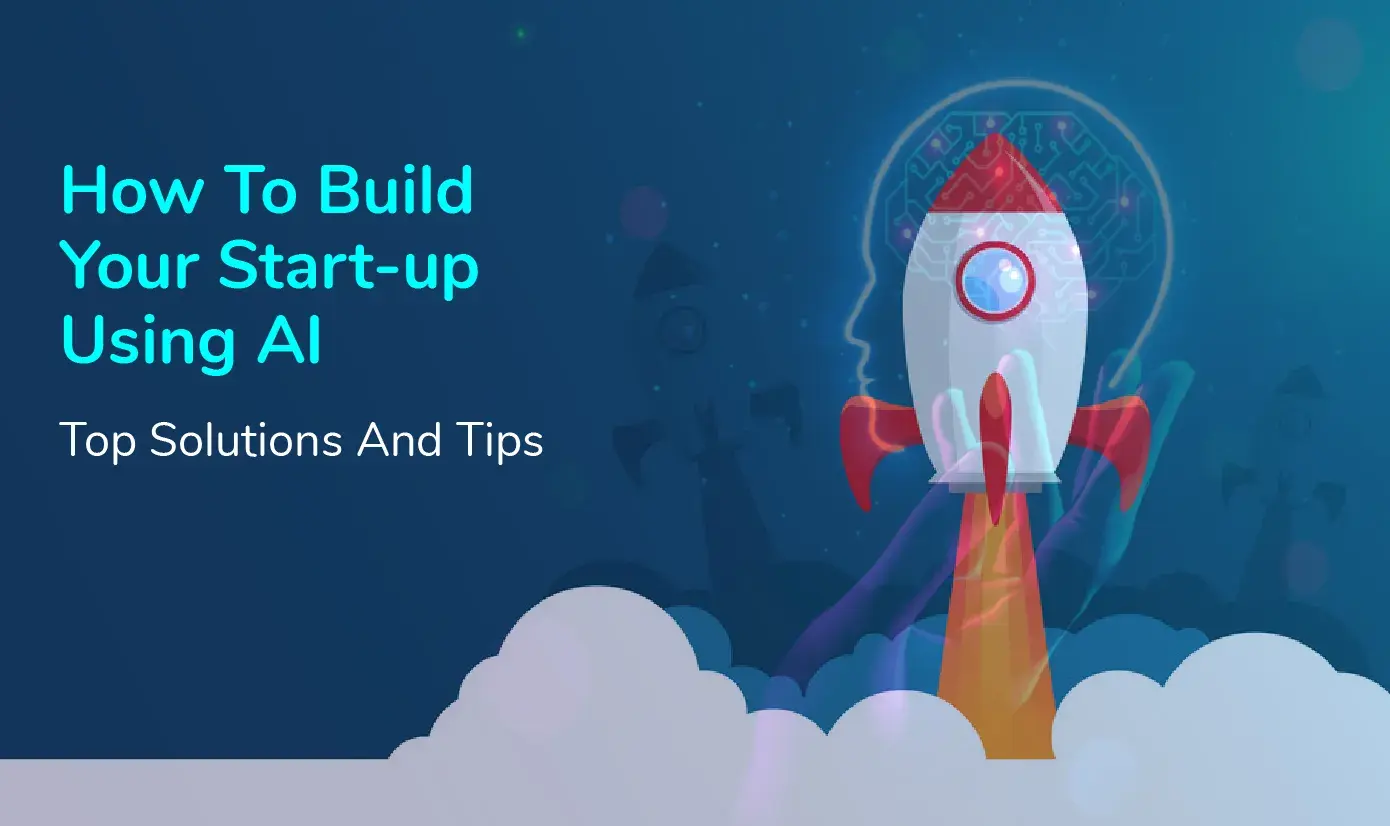Building a startup is a challenging task, but integrating AI into your business operations can help you streamline processes and improve efficiency. AI-powered technologies can help businesses gain a competitive edge, reduce costs, and enhance customer experience. Here are some key features to consider when building your startup using AI:
1. Identify Business Problems That AI Can Solve
The first step is to identify the problems in your business that can be solved using AI. Analyze your business operations and identify the areas that require automation. For instance, you may want to automate your customer service, marketing, or financial operations using AI.
Identifying the business problems that AI can solve is critical to the success of your startup. This will help you determine which AI technology to use and how to integrate it into your business operations. Additionally, leveraging software development for startups can streamline the implementation of AI solutions, ensuring they align with your unique business needs.
2. Choose the Right AI Technology
Once you have identified the areas that require automation, the next step is to choose the right AI technology. There are various types of AI technologies such as machine learning, natural language processing, computer vision, and robotics. Choose the technology that best suits your business requirements.To make an informed decision, consider collaborate with experienced app design experts. These professionals have hands-on experience and an understanding of how each technology works. Click here to know more about how experienced app developers can choose the right AI technology
Here are some popular AI tools that can be used when building your startup:
- TensorFlow: TensorFlow is an open-source machine learning platform that can be used to develop and train AI models. It is widely used in research and industry for natural language processing, computer vision, and robotics.
- Keras: Keras is a deep learning framework that can be used to build and train neural networks. It is user-friendly and easy to use, making it an excellent tool for developers with limited AI experience.
- Amazon SageMaker: Amazon SageMaker is a fully managed service that provides developers with tools to build, train, and deploy AI models. It supports popular machine learning frameworks such as TensorFlow and PyTorch.
- IBM Watson: IBM Watson is a suite of AI tools that can be used to build and train AI models. It includes tools for natural language processing, computer vision, and machine learning.
- H2O.ai: H2O.ai is an open-source platform that can be used to develop and deploy AI models. It supports popular machine learning frameworks such as TensorFlow and XGBoost.
- Google Cloud AI Platform: Google Cloud AI Platform is a fully managed service that provides developers with tools to build, train, and deploy AI models. It supports popular machine learning frameworks such as TensorFlow and PyTorch.
- Microsoft Azure: Microsoft Azure is a cloud-based platform that provides developers with tools to build, train, and deploy AI models. It supports popular machine learning frameworks such as TensorFlow and PyTorch.
- Zerocoder: Zerocoder is a web development and design service provider that offers top solutions for your business. They use no-code, low-code and AI to make sure that your start-up is up-to-date with modern trends.
- Wavel AI: Wavel is an AI-driven platform that offers cutting-edge solutions to help businesses enhance their digital content creation and management processes. One of their flagship products is Text-to-Speech technology that allows users to effortlessly convert written content into lifelike audio with natural-sounding AI voices. Wavel TTS supports over 250 AI voices in multiple languages, including English, Spanish, French, German, Mandarin, and Japanese. Users can generate high-quality voiceovers for e-learning materials, audiobooks, videos, and more. Wavel’s platform is an excellent choice for businesses looking to leverage AI technology to enhance their content creation and marketing efforts.
- Getmoda.io: Maximize your online store’s capabilities by harnessing the power of Moda, a cutting-edge eCommerce growth platform fueled by artificial intelligence. This platform offers a range of sophisticated eCommerce automation tools designed to enhance campaign effectiveness and significantly boost sales figures. With features such as comprehensive attribution analysis to evaluate the efficacy of your acquisition strategies and the ability to create personalized customer experiences for superior retention rates, GetModa.io’s integrated intelligent algorithms optimize every facet of your online store’s communication, delivering exceptional results. This ensures that you are running your online store at on its best capacity.
- LongShot AI is an AI writing assistant to help you build your start-up using AI, offering advanced GPT-4 capabilities for content creation. Its best features include FactGPT, Semantic SEO generator, Instruct AI, and Writer’s block remover, ensuring high-quality, tailored content for your business needs.
- Kimonix is an AI merchandising solution that helps online brands optimize sales and inventory, by showing the right product, in the right place, at the right time. With Kimonix you can sync and integrate many data points and use highly advanced parameters and functionalities to execute complex merchandising strategy ideas.
- ZenFire: ZenFire Co-Pilot is an AI inspection software that can help manage your customers and their relationships, increasing your customer retention rate while also developing beneficial relationships for your organization. With ZenFire, you can proactively develop the company’s authority and improve the operations of your regular inspections.
- Content at Scale: Content at Scale is an AI writer that helps startups, large and small businesses, and marketers create long-form content around target keywords with minimal human intervention. Some of its key features are SEO scoring, deep keyword insights, standard text editor, NLP optimization, free plagiarism scanner, free AI detector, and a WordPress plugin that allows you to publish in an instant.
- Kixie PowerCall: Kixie is an AI-powered calling and texting platform for sales and customer service teams. Like a behind-the-scenes assistant that makes everyone’s job easier, Kixie’s AI-driven Conversation Intelligence and ConnectionBoost products make it easy to track sales calls, coach your team, and increase your connection rate.
Choosing the right AI technology for your startup is critical to achieving your business objectives. Consider the specific business problems you are trying to solve and the technology that best suits your requirements. For instance, you’re running your own website creation agency. consider the available AI website builder in the market to help you with your business operations.” Also, explore more AI tools in marketing that meet your business requirements. Investing in the proper online reputation management reseller will enable you to grow your business and build a positive reputation. An AI website generator automates the process of creating websites by leveraging artificial intelligence to design and develop user-friendly and visually appealing web pages with minimal manual input
3. Hire AI Experts
Building an AI-powered startup requires expertise. Hire AI experts who have experience in developing AI technologies. If you are short on funds, you can consider hiring freelancers or outsourcing custom AI development company.
AI experts can help you develop an AI strategy, choose the right technology, and integrate AI into your business operations. They can also help you identify and resolve issues that arise during the development process.
4. Gather and Analyze Data
AI requires a large amount of data to work efficiently. Collect or scrape data from various sources such as customer interactions, social media, and financial records or doing web scraping. Analyze this data to identify patterns and trends that can help you make informed business decisions.
Data analysis is critical to the success of your AI-powered startup. It can help you identify customer preferences, optimize business processes, and improve customer experience. By integrating data observability into your workflow, you can proactively address data issues, enhancing the overall performance and reliability of your AI solutions. To simplify the analysis process, startups should leverage customer insight tools and software.
5. Develop an AI Model
After gathering and analyzing the data, the next step is to develop an AI model. The AI model is the backbone of your AI-powered startup. It is the algorithm that processes the data and makes decisions based on the data input. Hire experienced AI developers to develop an AI model that suits your business requirements.
Developing an AI model requires expertise in AI programming and data analysis. Ensure that you work with experienced AI developers who can help you develop an AI model that meets your business needs.
6. Test and Refine the AI Model
Before implementing the AI model into your business operations, it is essential to test and refine the model. Test the AI model with sample data to ensure that it is working as expected. Refine the model based on the test results to improve its accuracy and efficiency.
Testing and refining the AI model is critical to ensuring that it is effective and efficient. It can help you identify and resolve issues before implementing the model into your business operations, saving you time and resources.
7. Integrate AI into Your Business Operations
After testing and refining the AI model, integrate it into your business operations. Train your employees to use the AI technology effectively. Monitor the AI system’s performance regularly and make adjustments as necessary. When integrating AI into your startup, prioritizing robust security measures is essential to safeguard sensitive information and maintain operational integrity. Leveraging AI security solutions can help you identify vulnerabilities, protect against threats, and ensure compliance with industry standards.
Integrating AI into your business operations requires proper planning and execution. Ensure that you have adequate resources to train your employees and monitor the system’s performance regularly. Additionally, if you have the resources, consider investing in payroll for small business software to streamline your financial operations as well.
8. Monitor and Improve AI Performance
Once you have integrated AI into your business operations, monitor its performance regularly. Analyze the data generated by the AI system to identify areas for improvement. Use this data to refine the AI model and improve its performance. When analyzing gathered data, you can implement an Excel alternative to ensure you’re checking the AI system’s performance really well.
Monitoring and improving AI performance is critical to achieving your business objectives. It can help you optimize business processes, improve customer experience, and gain a competitive edge.
Monitoring is also a means of avoiding security issues that could arise from implementing AI. For instance, using an automated XSS scanner to pinpoint cross-site scripting vulnerabilities in your web-based AI assets is wise.
9. Stay Up-to-Date with AI Trends
AI is an evolving technology, and staying up-to-date with the latest AI trends is critical to the success of your startup. Attend industry conferences, read industry publications, and network with other AI professionals to stay informed about the latest developments in AI.
Staying up-to-date with AI trends can help you identify new opportunities and stay ahead of the competition. It can also help you identify potential threats and challenges that may arise in the future.
In conclusion, building an AI-powered startup requires careful planning, execution, and monitoring. Identify the business problems that AI can solve, choose the right AI technology, hire AI experts, gather and analyze data, develop an AI model, test and refine the model, integrate AI into your business operations, monitor and improve AI performance, stay up-to-date with AI trends, and consider using AI tools to help you achieve your business objectives. By following these key features, you can build an AI-powered startup that can help you gain a competitive edge, reduce costs, and enhance customer experience.

.webp)










